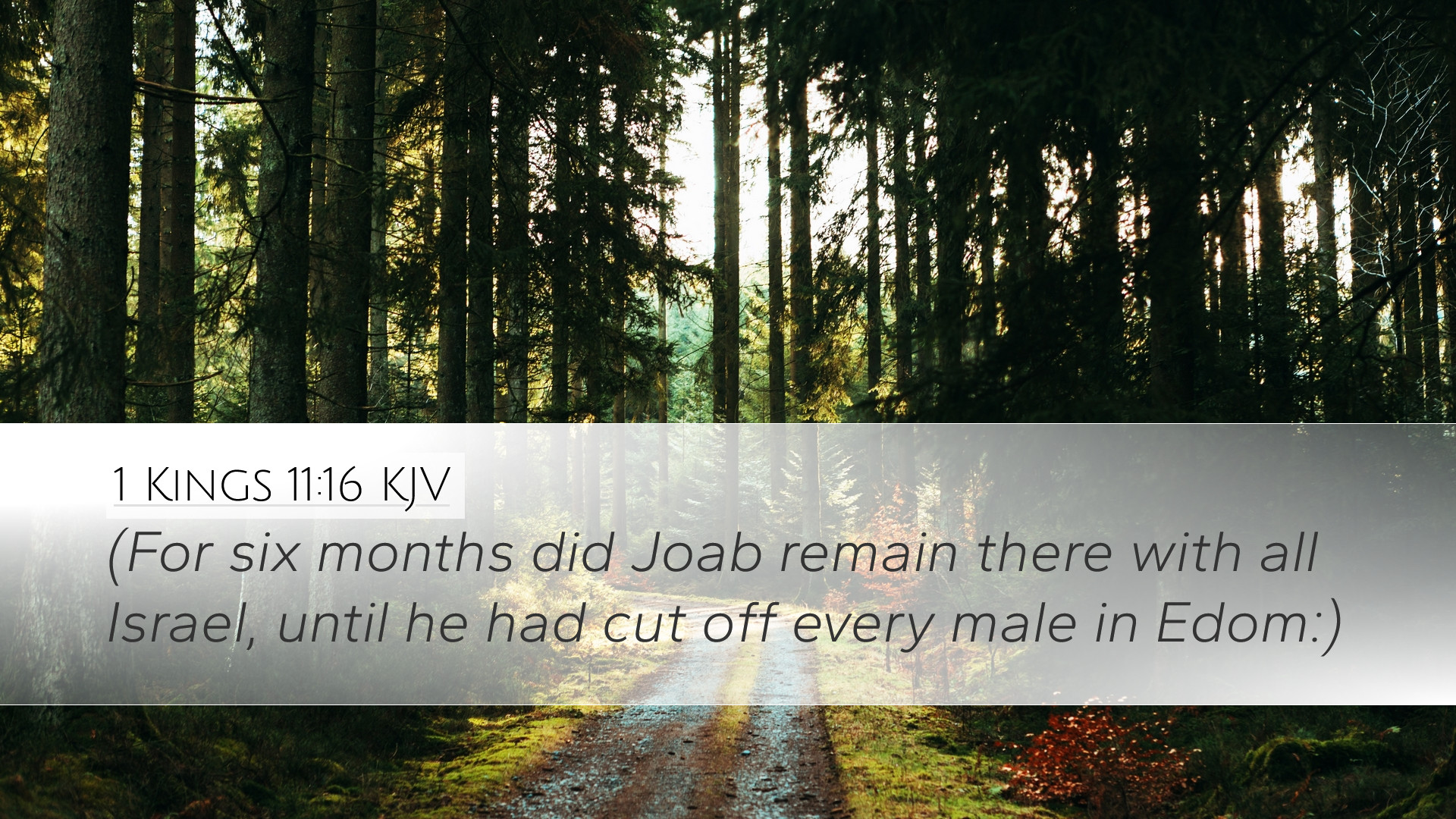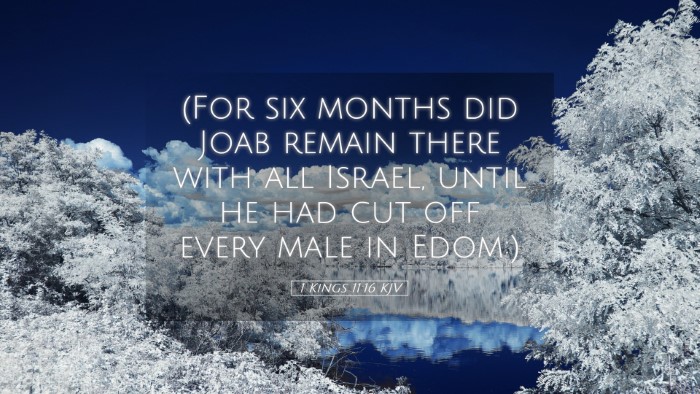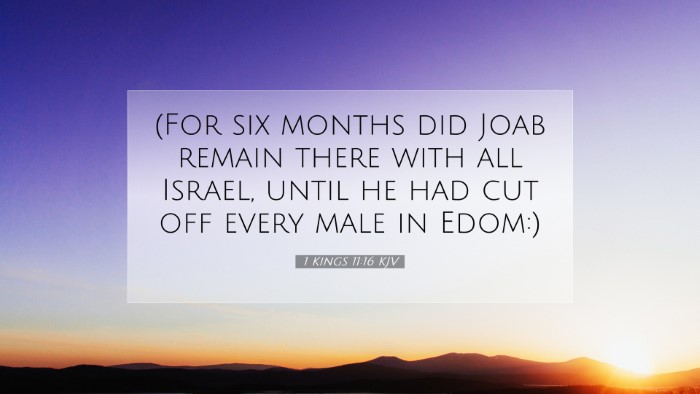Commentary on 1 Kings 11:16
Verse Reference: 1 Kings 11:16 - "For six months did Joab remain there with all Israel, until he had cut off every male in Edom."
Introduction
The verse at hand serves as a crucial moment in the chronicle of Israel's history, particularly during the reign of King Solomon. This commentary aims to delve deeper into the historical, theological, and application-oriented perspectives derived from this verse, pulling together insights from well-regarded public domain commentaries including those of Matthew Henry, Albert Barnes, and Adam Clarke.
Historical Context
1 Kings 11 narrates a pivotal transition in Israel's monarchy, focusing particularly on the actions of sovereigns and the outcomes of their decisions. Edom, a neighboring nation, had historical animosities with Israel and had at various times posed threats to its stability. The mention of Joab, David's prominent military commander, and his prolonged campaign against Edom contextualizes the conflict and the intensity of Israel's military response during this period.
The Role of Joab
Joab’s military prowess and experience are underscored in this passage. Having served under David and now witnessing the early reign of Solomon, Joab plays a critical role in this military campaign. His actions reflect the political and military strategies of the time.
- Military Strategy: Joab's six-month siege illustrates the strategic patience required in military campaigns, emphasizing the importance of thoroughness over haste.
- Leadership: Joab serves not just as a military commander, but as a representative of Israel's strength and resolve in securing its borders against perceived threats.
Theological Implications
This verse opens a channel for deeper theological reflection. The act of cutting off every male in Edom is significant as it speaks to themes of judgment and the fulfillment of divine promises.
- Divine Judgment: The annihilation of the male population can be viewed through the lens of divine judgment, fulfilling God's longstanding enmity towards Edom due to its opposition to Israel.
- Preservation of Israel: This incident showcases God's commitment to protecting His covenant people. The destruction of Edom could also symbolize God's providential care over Israel, ensuring they remain undivided and uncontested.
Insights from Commentators
Matthew Henry
Matthew Henry notes that the destruction of Edom serves as a manifestation of divine retribution. He emphasizes that, historically, Edom had been a persistent enemy of Israel. Henry argues that God’s plan often necessitates the removal of contrary influences to protect His chosen people.
Albert Barnes
Albert Barnes offers a socio-political insight, delineating that this act was not merely a display of militaristic dominance but a strategic move to secure a lasting peace for Solomon's Israel. He highlights the necessity of securing borders to prevent future conflicts, viewing Joab's actions as a deterrent against future hostility.
Adam Clarke
Clarke provides an additional layer by explaining the historical animosities that existed between Israel and Edom, referencing previous biblical figures and their conflicts. He posits that this campaign was part of Solomon's broader initiative to consolidate power and stabilize his kingdom in the face of internal and external pressures.
Applications for Pastors and Theologians
The events surrounding 1 Kings 11:16 offer several practical applications for contemporary readers, especially for pastors, theologians, and Bible students.
- Leadership Accountability: Joab's actions remind leaders of their responsibilities in safeguarding their communities, both spiritually and morally, suggesting the necessity of decisive action against destructive influences.
- The Importance of Prayer: Before undertaking significant tasks, leaders should seek divine guidance to ensure their actions align with God's will.
- Understanding God’s Sovereignty: This verse invites believers to trust in God’s providential oversight, recognizing that even military campaigns fulfill His divine purposes.
- Historic Lessons: Through the narratives of the Old Testament, we learn about God's character and His dealings with humanity, informing our current faith and practices.
Conclusion
In conclusion, 1 Kings 11:16 is more than a historical account; it offers profound insights into God’s sovereignty, the consequences of disobedience, and the pivotal role of leadership. As Christians engage with this text, it is vital to recognize the historical realities while applying its truths to present-day scenarios within the church and society at large.


